3 Tech Challenges to Face When You Build a Mental Health App
Building a mental health app differs from other software products. Are you planning to hire a software agency to develop your app for emotional support? Make sure that you know the technical challenges you and your team will likely face.
open to dive into HealthTech?
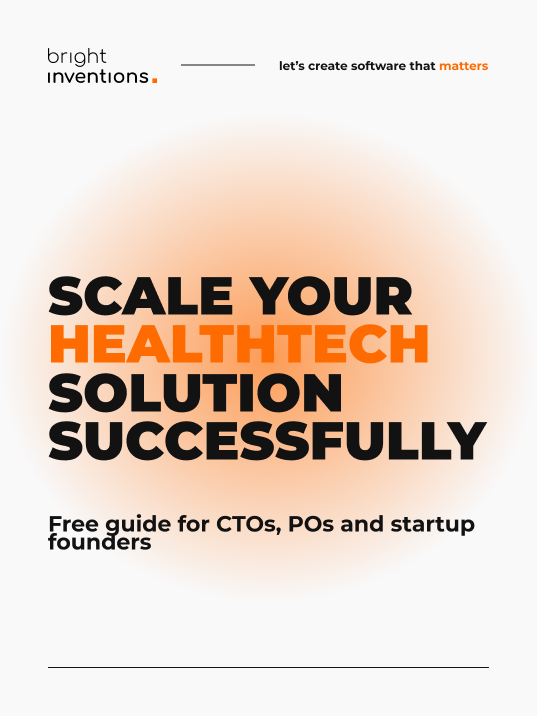
Numbers aren’t optimistic. WHO estimated that 280 million people around the world suffer from depression. Putting that in perspective – it’s around 80% of the population of the USA. Moreover, at least 25% of people will experience behavioral illness.
More of that was covered in our blog post about the future of healthcare software.
Probably no public health system will be able to respond to those needs. Therefore the number of mental health applications will be increasing.
As software developers specializing in building apps for depression, anxiety, and other mental disorders we have distinguished 3 challenges that every emotional support app team will likely face.
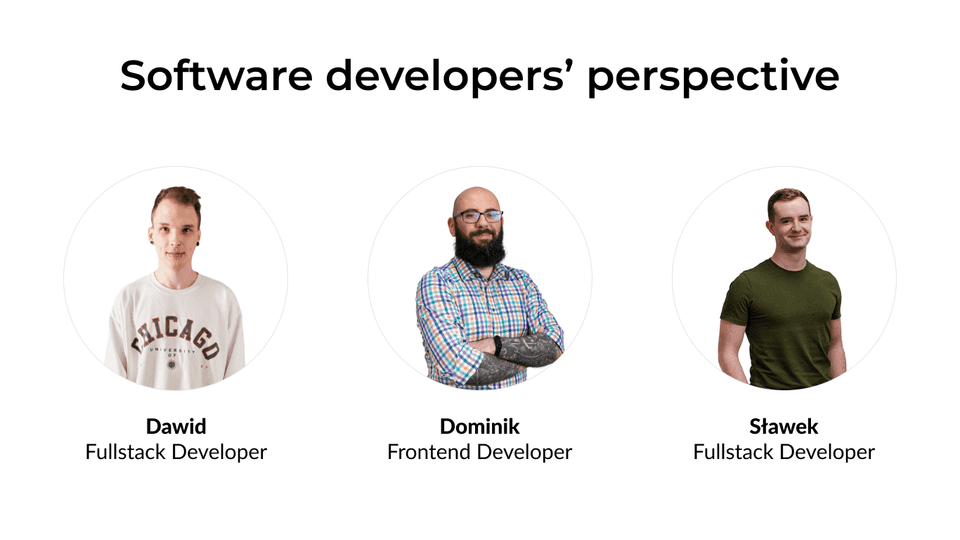
Data security and privacy
Dominik, Frontend Developer at Bright Inventions:
Privacy of personal information has always been a serious topic in software development. Yet it is especially important in the case of data connected to personal health. Every data leak is a potential complete loss of trust in a company.
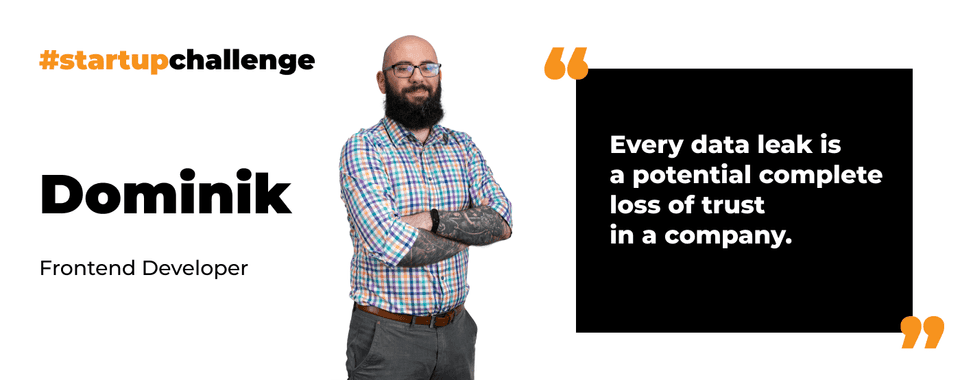
Moreover, it can be extra catastrophic when taking into account the fact that in many countries health information privacy is protected by law.
There are also challenges regarding anonymity. Not every user wants to share everything about themselves with other users. We might need their first and last name for payment purposes but they rather not be mentioned by real names inside the app.
Another thing to keep in mind is if we accept payments with credit cards. What will the credit card statement show? Some users might not be willing to share information that they’re using a mental health help with people who have access to their credit card statement – a spouse or parents.
Read our guide on security practices for healthcare apps that you can implement to ensure your app trustworthy and credibility.
Never losing users' trust
Dawid, Fullstack Developer at Bright Inventions:
In terms of mental apps, there are many ways to lose users' trust. Examples have just been presented by Dominik in the previous paragraphs.
Losing users’ trust is the worst scenario in most businesses. However, in terms of mental health apps – there can be no way back from that. Your users' trust is the guarantee of this business's success.
Let’s take as an example the hypothetical app that offers online group therapy sessions for people who deal with similar issues such as depression, eating disorders, or addiction. Not only do users share with you your personal data but also by joining the app inform you about their private struggles. Crucial personal data are at stake here.
What can we do to maintain their trust:
- Logging and tracking events
This may seem a bit odd in terms of maintaining the user’s trust, but by knowing how a user is using our application and being able to track what she or he was doing, we can improve user experience, and have an easier way to reproduce some faulty paths.
App performance monitoring is a perfect solution to proactively react to any performance issues before they start to frustrate your users. You can set up a basic monitoring with our guide: Unlock Performance Monitoring for HealthTech.
- Being transparent about the data we collect and our privacy policy
We should be open about the data we collect about the users. You can be even obliged to do so for example in the European Union countries. There’s really no need to hide the fact that we are gonna use their e-mail for some marketing purposes. But please, give the user a way to sign off it, nothing may annoy them as constant spam on their e-mail inbox.
- Ensuring easy access to support
Providing various methods so the user can reach support easier if he/she is in need. Support contact information hidden between thousand of subpages is one of the worst things I can think of. By showing users a clear indication of where they should click, either by some chat widget or highlighted link, we show that we care about them and that they matter. Thus we build a bond between the brand and the customers.
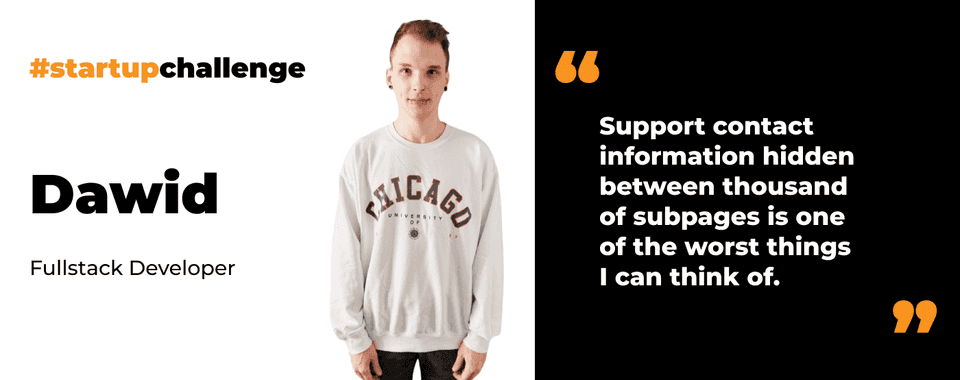
Designing inclusive UI
Sławek, Fullstack Developer at Bright Inventions:
A clear, uncomplicated graphical user interface is one of the key factors of mental health applications. It is not so difficult to imagine that even tech-savvy users might have issues with the app especially being overwhelmed with their personal issues. It is also important to remember that users won’t expect advanced animations, complex features, or modern designs. They will focus on receiving the help they need.
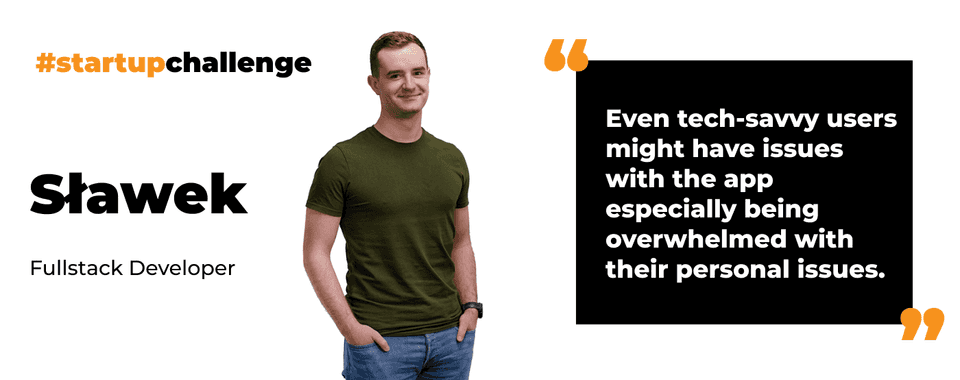
Overcomplicated design can even be an obstacle for less technical users to receive the professional help they look for.
Accessibility is something that has just started to get awareness throughout the software development community. Now it is a must-have to take under consideration various groups of users. Our users can be visually impaired or have other disabilities that make their experience with the app totally different than we could ever expect. The mental health app, especially, should be adjusted to the needs of the larger possible number of people.


